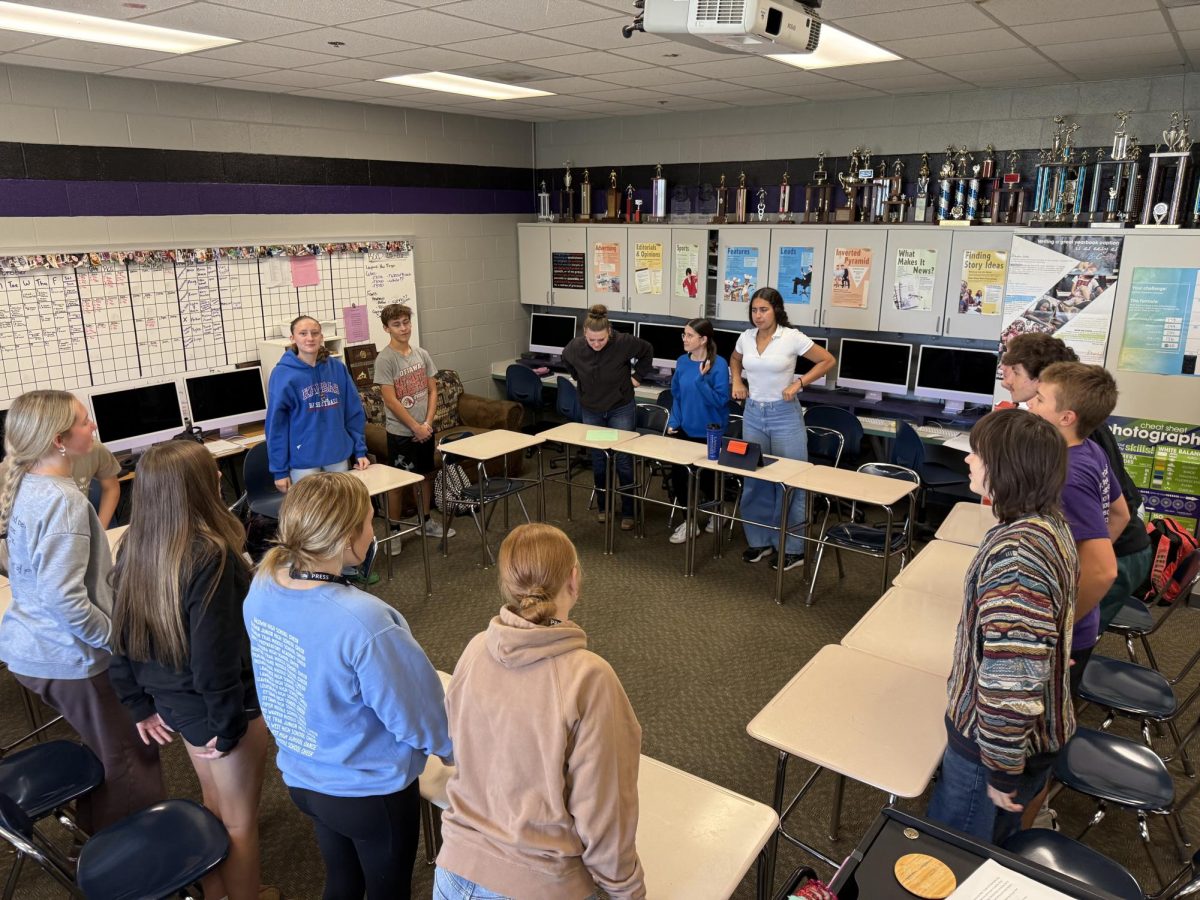There was a “court case” recently in Journalism teacher Kit Harris’s classroom. Harris and his Journalism Essentials held a court case in his room as a class experiment to learn more about slander and libel law.
“I learned exactly how a court case worked,” 8th-grader Kinsley Scott said. “I learned that slander is a false accusation that hurts another person’s reputation.”
All the students in journalism got to participate a little differently. There were two lawyers per side, a legal team, a judge, a jury, and even a bailiff. It was run just like a normal court case.
“I liked that I got to learn more about how a court case was handled and that it made Kits’ class fun and made me remember stuff more,” 8th grader Colleen Steadham said.
Since all the students got to participate, some of them were able to be witnesses. One of them was Phyla Gordon, she was called to the stand by lead lawyer Steadham.
“I learned how to be more comfortable with talking in front of people,” Gordon said. “I also learned how to say the right thing under pressure.”
In the fake made-up case, Harris accused Scott of stealing Gatorade from Kwik Shop, which she did not do. Scott rebuked the accusation and took the case to court.
“I felt wronged and hurt that he would do that to me,” Scott jokingly said. “Especially because he’s my teacher.”
Scott won the court case by a jury, one of whom was freshman Ainsley Michael.
“I learned how to properly see perspectives from both points of view in an argument,” Michael said. “I also learned more deeply into the rules and realities of court.”


